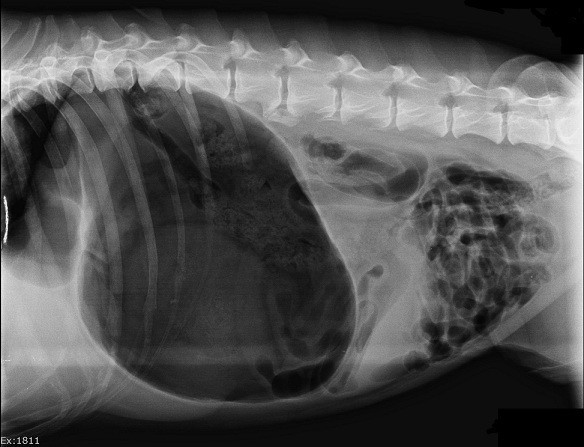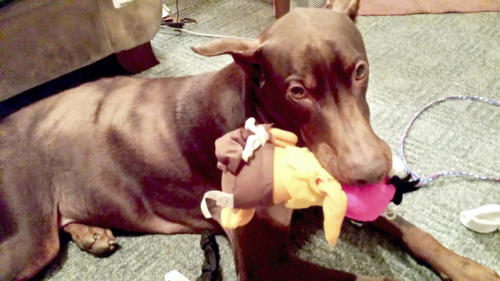Our Cardiologist Dr. Roland and C.H.O.P.’s BUDDY WALK
Our Cardiologist Dr. Roland and C.H.O.P.'s BUDDY WALK Our Cardiologist Dr. Risa Roland will be participating in Children's Hospital of Philadelphia's annual BUDDY WALK October 5, 2014. Location: Villanova University Stadium More than 3,300 parents, grandparents and children from across…
Frequently Asked Emergency Question 5
My cat is squinting one eye, what should I do? Pets can squint for many reasons ranging from a corneal ulcer to glaucoma. If your cat or dog is suddenly squinting one or both eyes the best thing you can…
Trigeminal Neuritis
By Dr. Jerry Northington Trigeminal Neuritis Trigeminal neuritis is a poorly understood, probably inflammatory or autoimmune disease affecting some branches of the trigeminal nerve (Cranial Nerve V). Animals are presented with inability to close the jaw and difficulty taking food…
Canine Splenic Hemangiosarcoma
Canine Splenic Hemangiosarcoma Question: My 10 year old Golden Retriever, Gracie, was recently diagnosed with a ruptured splenic mass. She had surgery performed to stop the bleeding and remove the mass. Unfortunately, the mass returned as a type of cancer…
Frequently Asked Emergency Question 2
What is Canine Bloat? Bloat is more accurately called Gastric Dilatation and Volvulus (GDV), a condition where the stomach fills with gas or food and twists on its long axis. GDV can occur in any breed of dog or cat,…
Paralyzed dog makes ‘phenomenal’ recovery in York County
The 6-year-old Doberman pinscher can walk again. Local rescue is hoping to recoup $10,000 spent on medical care By Brandie Kessler bkessler@ydr.com @I_M_BrandieK on Twitter Dogs need few things to live meaningful lives. That's what veterinarian Jon Nannos believes. "They…
Dog Safety for Kids
Dog Safety for Kids (Ages 6-14 years) Sunday, May 18th 2:00 p.m. – 3:00 p.m. Where: Metropolitan Veterinary Associates Space is limited Dog bite prevention week is May 18-24. We at Metropolitan know the importance of teaching children the safest…
Frequenty Asked Emergency Questions 1
My dog ate a penny, should I be worried? Simply put, yes. Pennies produced after 1983 contain zinc which is toxic to dogs and cats. Zinc causes hemolytic anemia (destruction of red blood cells) through an unknown mechanism and can…







